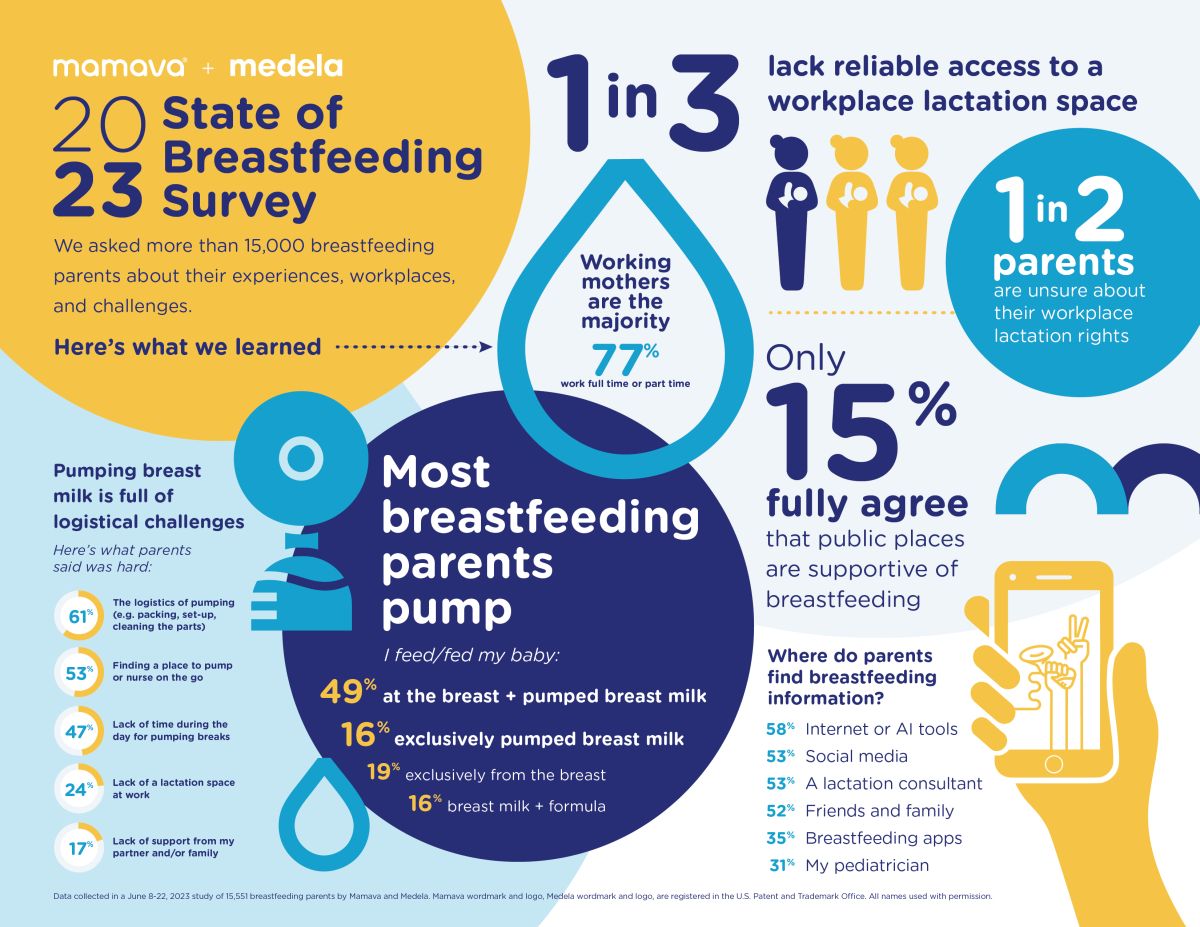KUALA LUMPUR, July 26 – While 83 per cent of breastfeeding parents are highly motivated to feed their babies breast milk for its health benefits, they face significant challenges, particularly around pumping breast milk, which about three in four breastfeeding parents do at least some of the time, according to a United States study conducted by Mamava and Medela last month.
Only 19 per cent of respondents reported exclusively breastfeeding, while three out of four use a breast pump, in addition to direct feeding at the breast. This data reinforces that for today’s parents, breastfeeding includes breast pumping.
The study surveyed more than 15,000 breastfeeding parents in the US about their breastfeeding motivations, challenges, and support systems.
While the findings underscore the reality that most breastfeeding parents also pump, it also revealed that society — from workplaces to public spaces — is not designed to provide the kind of lactation infrastructure and support parents need.
Other key takeaways from the study include:
- Only 15 per cent say public spaces are fully supportive of breastfeeding parents’ needs.
- 53 per cent aren’t sure of their workplace lactation rights, and more than one in four do not feel even somewhat supported at work.
- One in three parents lack access to a reliable workplace lactation space.
- 47 per cent cite a lack of time for pumping breaks as a barrier, despite US federal law (the PUMP for Nursing Mothers Act) and many state laws that require employers to provide breastfeeding employees with a lactation space and reasonable break time to pump.
- 61 per cent say the logistics of pumping — packing, transporting, and cleaning pump parts — are a top challenge for breastfeeding.
The PUMP for Nursing Mothers Act gives nursing employees the rights to receive break times to pump and a private place to pump at work.
The study also revealed that breastfeeding is often more of a culturally and socially informed experience than a clinically guided one.
Internet searches topped parents’ list of sources for breastfeeding information (58 per cent), followed by social media and lactation consultants (53 per cent), friends and family (52 per cent), and breastfeeding apps (35 per cent). Only one in three consulted paediatricians.
“Over the last decade, we’ve seen significant progress in education, policy, and infrastructure that makes breastfeeding a more realistic option for anyone who wants to do it — but not nearly enough to support parents in meeting their personal goals, or the American Academy of Pediatrics’ recommendations to breastfeed for two years,” said Sascha Mayer, co-founder and chief experience officer for Mamava in a statement.
“We can’t just double the length of time parents should breastfeed to see health benefits and not significantly level up the structures of support that will help them be successful. That’s an incredible amount of pressure to shoulder alone.
“Breastfeeding babies is everyone’s job — because breastfeeding benefits everyone. We need better education and more inclusive communities and work environments,” she added.












